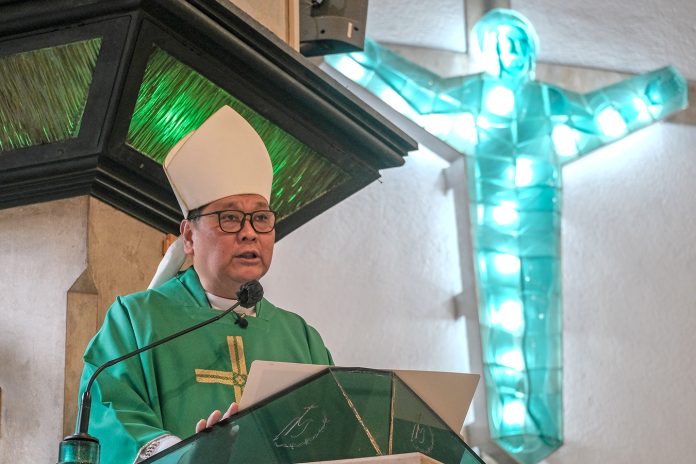A Catholic bishop in the Philippine capital said Christians are compelled to act when people’s dignity is violated.
“We are encouraged to walk together with our Filipino brothers and sisters who share both our human and Christian dignity, but whose dignity is threatened, exploited, and trampled upon,” said Bishop Mylo Hubert Vergara, vice president of the Catholic Bishops’ Conference of the Philippines.
The prelate was speaking during the first National Day of Prayer and Awareness against Human Trafficking observance on Sunday, February 5, at the EDSA Shrine in Quezon City.
The country’s Catholic bishops declared during their plenary assembly in January that every first Sunday of February will be a National Day of Prayer and Awareness against Human Trafficking.
In a report on CBCP News, Bishop Vergara said it’s a great opportunity for Catholics to pray for people, especially for overseas Filipino workers, who are “unjustly treated and violently abused by human traffickers.”
He said the observance is a “spiritual way of asking Jesus to help fulfill our task to reach out and help victims of human trafficking … with the hope, that through our prayers, victimizers will be touched by the Lord and have a change of heart.”
“May we also live up to our priestly, prophetic, and kingly call to be co-journeyers in dignity as we heed the challenge to curb and hopefully stop the evil of human trafficking by the mercy and love of Jesus Christ,” added Bishop Vergara.
After the Mass, he led churchgoers in lighting candles and praying for the victims and survivors of human trafficking.
Global Slavery Index in 2018 estimate that approximately 784,000 people live in modern slavery in the Philippines.
The country is also the largest known source of online sexual exploitation of children (OSEC), according to the International Justice Mission (IJM).
In 2020, 1.2 million OSEC cases have been reported to the Inter-Agency Council Against Trafficking (IACAT), an increase of 265 percent cases reported from 2019, many of the children are reported to be less than 12 years old.
In a statement, the CBCP Cluster Against Human Trafficking expressed hope that the annual observance will help heighten the consciousness of faith communities on the issue “and will encourage them to protect their respective families, particularly women and children, against trafficking.”
The cluster is composed of various CBCP commissions and offices with the Episcopal Commission for the Pastoral Care of Migrants and Itinerant People as the lead convener.









